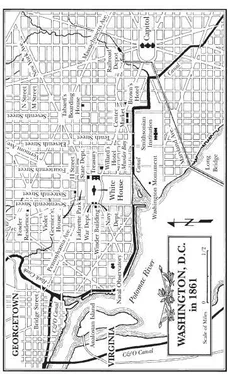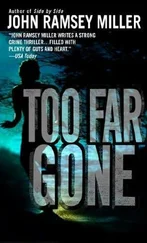John Miller - The First Assassin
Здесь есть возможность читать онлайн «John Miller - The First Assassin» весь текст электронной книги совершенно бесплатно (целиком полную версию без сокращений). В некоторых случаях можно слушать аудио, скачать через торрент в формате fb2 и присутствует краткое содержание. Жанр: Исторический детектив, на английском языке. Описание произведения, (предисловие) а так же отзывы посетителей доступны на портале библиотеки ЛибКат.
- Название:The First Assassin
- Автор:
- Жанр:
- Год:неизвестен
- ISBN:нет данных
- Рейтинг книги:3 / 5. Голосов: 1
-
Избранное:Добавить в избранное
- Отзывы:
-
Ваша оценка:
- 60
- 1
- 2
- 3
- 4
- 5
The First Assassin: краткое содержание, описание и аннотация
Предлагаем к чтению аннотацию, описание, краткое содержание или предисловие (зависит от того, что написал сам автор книги «The First Assassin»). Если вы не нашли необходимую информацию о книге — напишите в комментариях, мы постараемся отыскать её.
The First Assassin — читать онлайн бесплатно полную книгу (весь текст) целиком
Ниже представлен текст книги, разбитый по страницам. Система сохранения места последней прочитанной страницы, позволяет с удобством читать онлайн бесплатно книгу «The First Assassin», без необходимости каждый раз заново искать на чём Вы остановились. Поставьте закладку, и сможете в любой момент перейти на страницу, на которой закончили чтение.
Интервал:
Закладка:
The East Room was large, with high windows on three sides. It was perhaps twice the size of the state dining room and appeared both majestic and worn out. The ceiling’s white paint had chipped in one corner, and a panel of grimy yellow wallpaper sagged in another. The signs of former grandeur were everywhere: three massive chandeliers, a detailed floral carpet, several marble fireplaces with tall mirrors hanging above them, thick maroon curtains covering the windows, and regal blue chairs. Gold trim seemed to decorate everything.
The most striking features, though, were the East Room’s occupants: the so-called Frontier Guards. About thirty of them lounged around playing cards or snoozing. They had transformed the room into a campground. A pile of backpacks rested to one side, and rifles stacked upright formed teepees beneath the chandeliers. The men were not responsible for the room’s faded appearance, but their presence had faded it further. The carpet wore a coat of dry mud. Pipe smoke drifted upward. Mazorca figured the dilapidation here was like the growth of a plant: too slow to watch minute by minute, but rapid enough to measure over the course of days.
After observing this scene, Mazorca left the East Room and returned to the stairs by the doorway. He began to climb them, half expecting to be stopped by a soldier. The mansion’s security-or, more accurately, the almost total lack of it-astonished him. He had visited capital cities in other countries before and had seen official residences. He was not sure he knew of a single one that was open to the public, let alone one that permitted the free movement he enjoyed here. Some Americans, he knew, would applaud this as a praiseworthy feature of their democratic nation. Mazorca believed it was sheer foolishness.
He arrived in an office vestibule on the second floor. There was nobody in it, but he observed a small population of men lined up in an adjoining hallway, which he could see through a pair of glass doors. There were probably fifteen of them, all civilians. To his left was an open doorway into another room. Just as he was about to enter it, a tall, skinny man appeared on the threshold. He turned around, his back to Mazorca, and said, “When may I expect to hear something?”
“That is impossible to know, Mr. Meadors,” came a voice from inside the room. “Please be patient. We will inform you as soon as possible.”
“Thank you again, Mr. Hay.”
Then Meadors nearly collided into Mazorca. He quickly apologized and departed into the hallway, where the crowd began to pepper him with questions. Mazorca paid them no heed and walked into the room Meadors had exited.
There was a window at one end and two doors along each side. It resembled a short corridor more than an office. By a desk in the middle stood a young man with a thin mustache, studying a set of papers in his hand. When he saw Mazorca, an expression of irritation crossed his face.
“I thought I told everyone to stay in the hallway until you were called,” he scolded.
“Please excuse me,” said Mazorca, “I thought-”
“Oh, never mind. The last one just left. But you probably know that. I’m John Hay, the president’s secretary.”
Hay held out his hand, and Mazorca shook it. Then a bell rang. Hay seemed to expect it.
“He’s ready,” said Hay. “You can expect to have about five or ten minutes. Come this way.”
Hay stepped to a mostly closed door on the north wall, pushed it open, and walked in. Mazorca followed. Before he even knew where he was, he heard the secretary say something he scarcely believed.
“Mr. President, your next appointment is here.”
Tate walked to the stables at the Stark farm, near the scene of the previous day’s violence. He had spent the night there with Hughes, who remained bedridden on the orders of a doctor summoned in the middle of the night. The young man would recover, but it would take time. Tate now wanted to get back to Bennett and let him know what had happened. It was a grim task, but he was determined to do it.
As he approached the stables, with his dog by his side, one of Stark’s slaves saw him.
“Jeremiah,” he shouted over his shoulder, “get Mr. Tate’s horses.”
A boy emerged with a group of horses: the one Tate had ridden, the one Hughes had ridden, and the two taken by Joe and Portia, which they had picked up along the way. A large sack drooped over the back of one animal. Inside of it was Joe’s cold body. Tate thought it made sense to have it buried on Bennett’s land.
Tate paid no heed to Jeremiah until the dog sniffed him and let out a yelp. Then it started barking wildly at Jeremiah. Tate hollered for silence. The dog obeyed but continued to stare and flick its tail. Tate thought the dog’s behavior was a clear sign of recognition. He studied the boy and wondered.
“What’s your name?” asked Tate.
The question startled Jeremiah. He was not used to white visitors taking an interest in him, except to scold. Tate repeated the question, and Jeremiah answered it.
“Have I seen you before, Jeremiah?”
“I don’t know,” said Jeremiah, a bit tentatively.
“Have you seen me?”
“Before today? I don’t think so.”
The dog remained agitated. It grumbled and refused to take its eyes off the boy.
“Do you know anything about runaways? If you know what’s good for you, answer truthfully.”
“I haven’t seen any.”
Tate liked to think he could spot a liar just by looking at him-it was an essential skill for an overseer. With Jeremiah, however, he just could not tell. Rather than shiftiness or defiance, he saw fear in the boy. It meant that either he really did not know anything about Portia and Joe or he was an above-average deceiver. Tate was tempted to put Jeremiah in shackles and quiz him.
But what would that solve? Hughes was badly hurt, and Tate did not want to alienate the Starks. Portia was long gone. It made sense to get back to Bennett’s. The overseer got on his horse and left. The horses followed Tate to the road, and the dog did too. But the dog also kept turning around for another look at Jeremiah. When the boy disappeared into the stables, the dog let out a final bark. Then it stayed by Tate’s side all the way home.
The basement of the Treasury was so dark and dank that if Rook had not known better, he might have thought it was a medieval dungeon. A king of old Europe might condemn a prisoner here and throw away the key. These were helpful atmospherics, thought Rook, but best of all was the obscurity of the place. Almost nobody ever came down here-the only reason Rook had learned of it was because he had inspected the building several weeks earlier, when he was assessing its value as a defensive structure. The place was a warren of rooms filled with everything from dusty financial records to pieces of broken furniture. In one remote corner, however, was a short corridor of empty chambers that were little more than glorified closets. It was here that Rook had taken his four prisoners from the C amp;O Canal, placing them in separate rooms.
Through the night, Rook, Springfield, and Clark had taken turns grilling Davis, Stephens, Mallory, and Toombs. The interrogations had not gone well. Rook had a long list of questions: What were their real names? Where were they from? Why had they walked around the Capitol? Why had they visited Violet Grenier? What were they planning to do with the blasting powder?
After a while, it became apparent that Mallory and Toombs did not say much because they did not know much. Yet even they held their tongues on simple questions about their identities. Davis and Stephens seemed to have more to hide, but they did not budge either. Rook could think of no easy way to compel them. Out of sheer frustration, he had kicked Davis in the gut and threatened to do worse, but to no avail. Rougher techniques were an option though he did not feel confident about resorting to them-at least not yet.
Читать дальшеИнтервал:
Закладка:
Похожие книги на «The First Assassin»
Представляем Вашему вниманию похожие книги на «The First Assassin» списком для выбора. Мы отобрали схожую по названию и смыслу литературу в надежде предоставить читателям больше вариантов отыскать новые, интересные, ещё непрочитанные произведения.
Обсуждение, отзывы о книге «The First Assassin» и просто собственные мнения читателей. Оставьте ваши комментарии, напишите, что Вы думаете о произведении, его смысле или главных героях. Укажите что конкретно понравилось, а что нет, и почему Вы так считаете.












